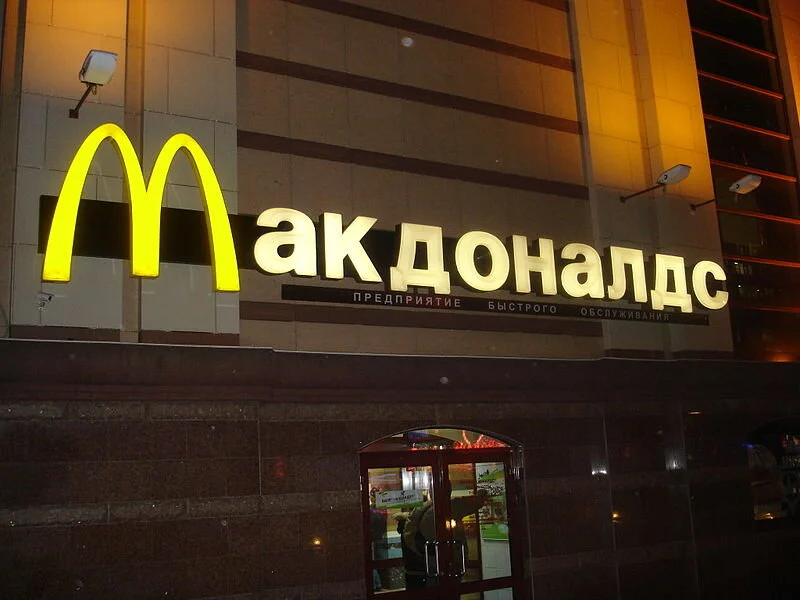President Emomali Rahmon won another election … is anyone surprised?
Image courtesy of the Press Service of the President of Russia, via Wikimedia ©2015, Some rights reserved.
“I remember the moment I heard that Emomali Rahmonov was appointed a president of Tajikistan for the first time. It was 1992 and I was a third-year student at university. Since then I heard the same sentence five times more. Nothing has changed,” stated Sirojiddin Tolibov, managing editor of the Tajik service of Radio Free Europe, during a conference by Central Asia project dedicated to Tajik presidential elections that took place on Sunday 11th of October.
It seems inevitable that Tolibov will hear the sentence once again very soon. According to preliminary official results Rahmon won with almost 91 per cent of votes. The final results will be available within a week.
President Rahmon is the longest-ruling leader in the post-Soviet space. He came to power in 1992 during the Tajik Civil War, offering hope for change, peace, and stability. When the peace agreement was signed in 1997, he started to consolidate his power. In 2016 he adopted a new constitutional amendment which formally granted him the title The Founder of Peace and National Unity — Leader of the Nation and the right to run for a presidency as many times as he wants to. This was his sixth election.
Unfair elections
There were four candidates currently running against him. Yet, none of them can be perceived as a real challenger, and the only serious opposition – the Social Democratic Party of Tajikistan – boycotted the election. Therefore, experts and international observers see the election as rather ceremonial.
Every election seems to be less democratic than those before. During the last one in 2013, the main opponent of President Rahmon, Zayd Saidov, was arrested after he officially announced his candidature. International observers called the election fraudulent and unfair with exception of monitoring body of the Commonwealth of the Independent States.
Just two years later, the government banned the Islamic Renaissance Party of Tajikistan, the most popular opposition party in the country, and imprisoned several of its leaders. Others left and currently operate in exile.
Crackdown on freedom
In 2019, Tajikistan ranked 159th in the World Democracy Index, 161st in Press Freedom Index, and the Freedom Housegave the country zero points out of 40 for Political Rights and nine points out of 60 for Civil Rights.
According to Human Rights Watch “the situation continued to deteriorate in 2019 amid an ongoing crackdown on freedom of expression and the political opposition, as well as the targeting of independent lawyers, journalists, and even the family members of opposition activists abroad. “
The coronavirus pandemic proved to strengthen the regime’s grip on power as the government amended Criminal Codesaccording to which penalties are provided for spreading inaccurate information. Officials also blocked several independent media websites.
It is possible that the human rights situation will continue to deteriorate after election. Furthermore, with current developments in Kyrgyzstan and also in Belarus, where president Lukashenko faces mass protests demanding his resignation, president Rahmon is likely to be more vigilant, imposing stricter measures to prevent similar uprisings against his rule.
According to some experts, he is already losing his legitimacy among the younger generation. While those who remember the war in the 1990s perceive Rahmon as a peacemaker, youngers evaluate Rahmon’s presidency through the lens of economic development or social conditions. And these two factors do not play in Rahmon’s favour.
“People are more interested in the price of potatoes than in the presidential election”
Tajikistan is the poorest country in the post-soviet space. Having the majority of its territory covered by mountains, it had always been very dependent on the import of food or electricity from other Soviet states. With the disintegration of the USSR, the country fell into a deep economic crisis which became one of the many drivers of the Tajik civil war.
Since the peace agreement in 1997, the government has neither been able to restore the economy nor invest in crucial sectors such as infrastructure or healthcare. According to the Borgen project „Tajikistan has an economy that is largely reliant on remittances from Tajiks who are working abroad – such remittances comprise almost 50 per cent of the nation’s total GDP.“ Not to forget about the country’s entrenched corruption.
The current coronavirus pandemic is therefore a blow to the economic situation as Tajik workers in Russia are not able to send enough money. The country has already asked China to relieve their debts or to allow them to pay it off by land. This might be a positive short-term outcome for president Rahmon but will surely be perceived negatively in the future.
According to Tolib “as winter is coming, a price of potatoes is more interesting for people than presidential elections.” This may prevent people from mobilizing but the inability of Rahmon to provide them with basic needs may cause him to lose legitimacy among a broader spectrum of inhabitants. The Chinese influence in the country can also turn negative for Rahmon as people already question the benefits of Chinese investments.
Yet, it is important to remember that Rahmon managed to consolidate his power effectively by appointing members of his family to high positions in the government and accommodate other influential elites.
It will be interesting to watch further developments in this mountainous country but according to many, it is not likely that the election will be followed by protests similar to those in Belarus or in neighbouring Kyrgyzstan. Only time will tell.




